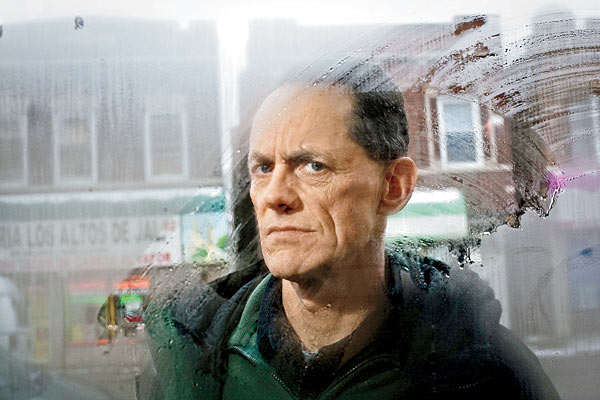
John Conroy at the Depot, a West Side diner frequented by police officers
Related:
A Mugging on Lake Street »
Conroy's account of his 2008 beating and lingering questions of race
Over the past 22 years, John Conroy’s reporting on torture by Chicago police officers has relentlessly revealed a culture of appalling brutality and false confessions coerced by burnings, beatings, suffocations, electric shocks to the genitals, and death threats. This month his work jumps from the page to the stage when TimeLine Theatre premieres My Kind of Town, the debut play by the veteran journalist affiliated for most of his career with the Chicago Reader. We talked with Conroy about whether the real-life players in the trial of Jon Burge—the former Chicago Police Department commander who was convicted of perjury and obstruction of justice in 2010—will recognize themselves, why he feels media coverage of that trial was ultimately a failure, and how the subject of police torture is still of paramount importance.
Jon Burge is in prison. Why revisit this subject—and why as a play?
I think the coverage of the Burge case is indicative of the failure of journalism. Burge got a four-and-a-half-year sentence. We’ve still got [alleged victims of police torture] sitting in prison, guys who’ve been there for 20 years, who confessed only after they were tortured. A play can make people feel they are responsible in a way that journalism can’t. I kind of wanted to indict the whole city with this. Everyone bears some responsibility. We all sanctioned torture.
This is a drama, so by default it’s fiction. But it isn’t really fiction, is it?
It’s obviously drawn from reporting. But for every scene you can point to and say, “That’s [torture victim and former death row inmate Aaron] Patterson,” I can show a scene that isn’t. It’s the same with the cop characters.
Was writing a play about police torture more challenging than covering it as a journalist?
One of the things I really wrestled with was shedding all of the journalism. I know what really happened, and changing things around to accommodate a theatrical device is really difficult for me. If you were making up this play out of whole cloth and you’d never been to a courtroom or a police lockup or an interrogation room or the bullpen outside the interrogation room, it would be easier to write something more streamlined.
How did you make your main police officer, Breen, more than just a two-dimensional portrait of evil?
Torture is a vortex. People get sucked into it. And to the people who say, “I’d never do that,” I’m sorry. The science indicates that you—we—would. Look at the Milgram experiment [Stanley Milgram’s seminal study at Yale on morality and torture]. Most of the regular people in the study turned into torturers. And they truly believed they weren’t really doing anything wrong.
With Breen, you hear a description of what this guy did, and the immediate reaction is to think he must be a monster. Then you see him with his family, his kids, his friends, and you say, “Well, wait. This isn’t a monster. I know guys like this.” I’ve met a lot of torturers over the years, and I’ve liked every one of them. It wasn’t hard for me to find the humanity in Breen.
My Kind of Town is set here and is loaded with local references. Will the play mean as much to someone who has never heard of Area Two?
I think what happened here is not unique. That’s why I called it My Kind of Town. I imagined audiences in other places realizing that the title refers to them, that they are the people portrayed on the stage, and that the play is about community responsibility.
GO My Kind of Town runs May 11 to July 29 at TimeLine Theatre; for info, timelinetheatre.com.
Photograph: Carlos Javier Ortiz


